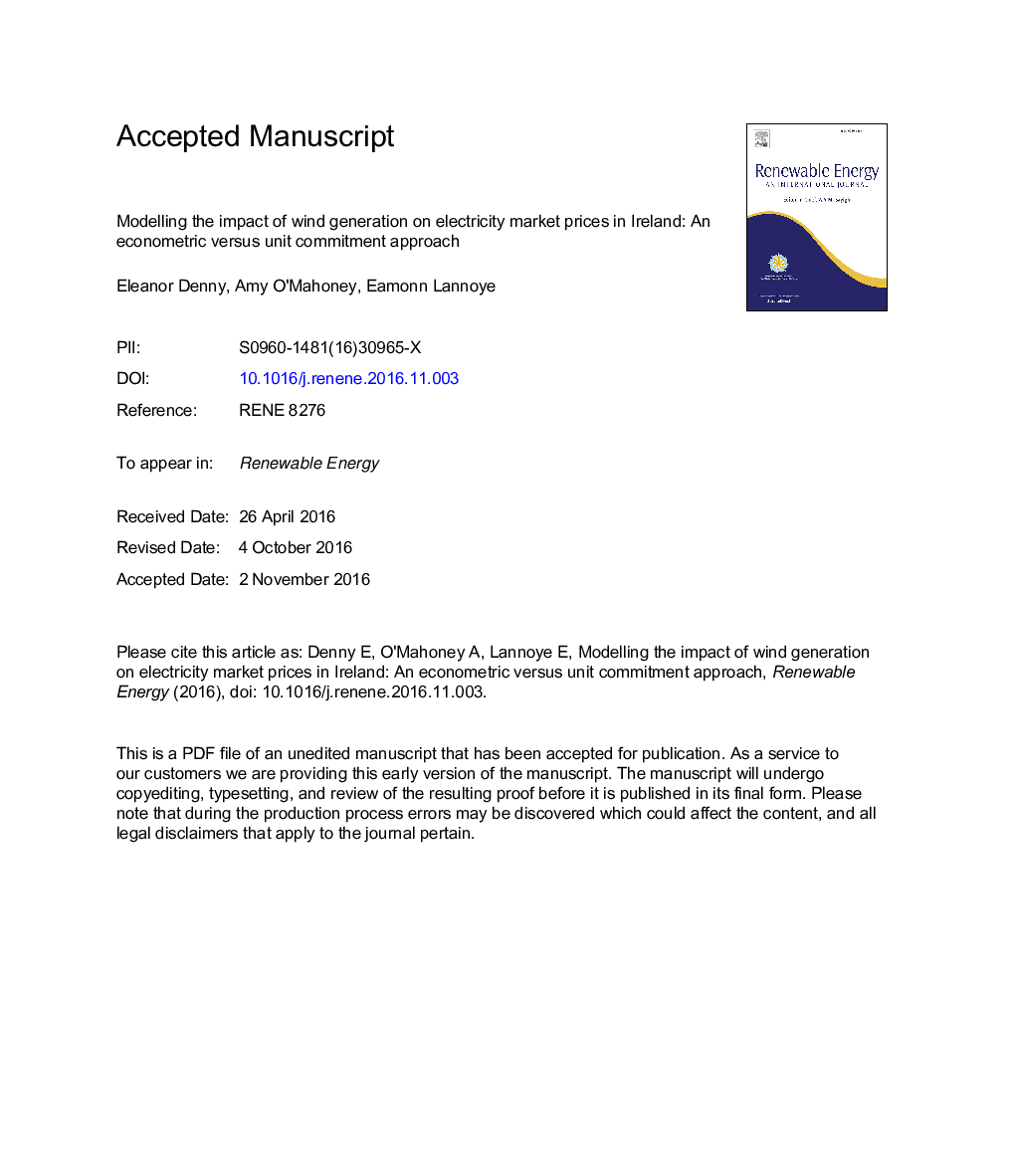| Article ID | Journal | Published Year | Pages | File Type |
|---|---|---|---|---|
| 4926775 | Renewable Energy | 2017 | 55 Pages |
Abstract
The aim of this research is to assess the impact of wind generation on electricity market prices using two different approaches: an econometric regression model and a unit commitment model (the latter being a methodological approach favoured by the engineering discipline). Overall, the findings of this paper indicate that wind generation reduces the marginal price on the case study electricity system, a result which is consistent across both methodological approaches. The level of savings is non-trivial and in the order of 4-5.4% of total dispatch cost. It is also found that the relationship between wind and prices is linear. The majority of literature in this area uses either an econometric or a unit commitment approach but not both, thus this paper allows for the isolation of the impact of modelling approach on the results. It finds that the results from both methods are comparable and the choice of modelling approach influences the results by just 1.4%. Thus, depending on the type of analysis required, an ex-post econometric model may be preferred by policy makers to an ex-post unit commitment model given the significant reduction in data requirements and computational time involved.
Related Topics
Physical Sciences and Engineering
Energy
Renewable Energy, Sustainability and the Environment
Authors
Eleanor Denny, Amy O'Mahoney, Eamonn Lannoye,
